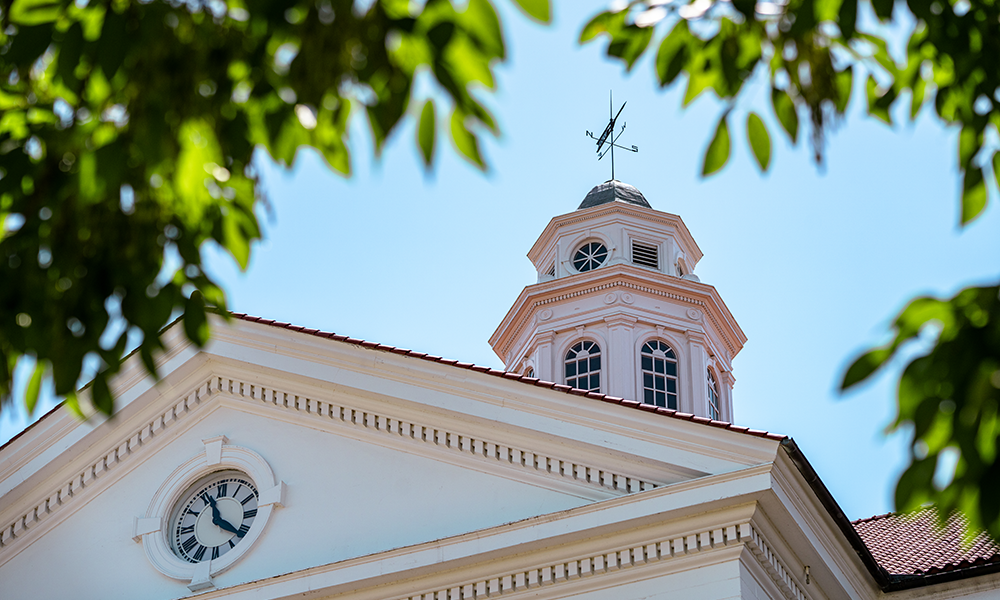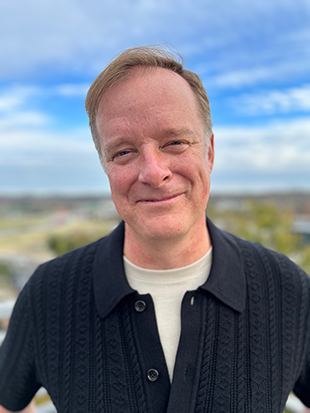An engaged historian: one alum’s journey from JMU to Capitol Hill
News
SUMMARY: Matt Wasniewski (‘91, ‘94M), Historian of the U.S. House of Representatives, shares how one history class changed his entire career path, and how he stays connected to JMU decades later.
 Matt Wasniewski’s (‘91, ‘94M) storied career shows how a liberal arts education can open unexpected doors. As Historian of the U.S. House of Representatives, Wasniewski is intimately familiar with how the past reverberates in the present.
Matt Wasniewski’s (‘91, ‘94M) storied career shows how a liberal arts education can open unexpected doors. As Historian of the U.S. House of Representatives, Wasniewski is intimately familiar with how the past reverberates in the present.
Wasniewski traces his interest in history back to childhood adventures with his father, visiting Civil War battlefields and searching on farms and other private property (with permission) for bullets and other artifacts. He did not begin as a history major in college, though; a specific interest in sports led him to choose JMU for its exceptional journalism program and award-winning student newspaper, The Breeze. He immediately dove in, starting as a sportswriter and working his way up to sports editor. By his junior and senior years, he was working 35-40 hours a week at the paper while carrying a regular course load. “That was a really valuable experience that taught me how to write and organize,” he remembers.
But his childhood curiosity reawakened when his roommates suggested he try a history class. Suddenly, after one course with now-retired history professor Raymond “Skip” Hyser, the subject became as important to him as journalism. “[History writing] is a different kind of writing, but it’s still writing,” he explains. He wound up with a second major shortly after.
After graduating, Wasniewski first worked as a sports editor at the weekly newspaper Fauquier Citizen. He worked long hours — up to 80 hours a week — but it gave him valuable experience. Just a few years later, wanting to study history more deeply, he returned to JMU for his master’s degree before heading to the University of Maryland for his PhD.
Wasniewski’s career in Washington, D.C. began when he joined the U.S. Capitol Historical Society in 1998. In 2002, he began working for the House of Representatives, helping to document its history, and in 2010, became the official Historian of the U.S. House of Representatives. His office serves two audiences, one internal to the institution — House members, committees and staff — and one external, the general public. For the institutional audience, his office works on projects like the Biographical Directory of the United States Congress (a joint project with the Senate Historical Office), which profiles every member who has served since 1789. They also answer reference requests, advise the Capitol Visitor Center about telling the history of Congress and are responsible for producing the House’s major historical publications.
The general public is served by history.house.gov, which sees seven to eight million visitors each year. The site provides historical information, the House records archive, and curated objects, artifacts and other material culture of the House. His office also runs an oral history program that has recorded over 500 interviews in the past 20 years about the inner workings of Congress. “I hadn’t had formal training as a historian doing oral histories. The journalism background has certainly helped,” he remarks.
“The liberal arts are invaluable,” says Wasniewski. “You go to college to learn how to be an informed and engaged citizen. That’s what we need. The critical-thinking skills that you get from a broad cross-section of the humanities are with you for life and can apply in almost any context. It’s important to be curious — to question things and want to learn more about them — while moving through your career because it is never a direct path from A to Z. It is winding and wending, and the ability to adapt will benefit you the most.”
Looking back, Wasniewski admits he never imagined he’d become a historian. “If you had asked me back then, I’d have said I wanted to be the next Tom Boswell, a baseball writer,” he says. “But those things I learned at JMU and that really got me hooked and interested — writing, learning about history, communicating, answering reference questions — those are the things that make my job enjoyable, and that make it a really fun job.”
Even with his busy career, Wasniewski stays connected to JMU. He serves on the CAL Alumni Advisory Board, participates in alumni panels and has helped organize two Capitol Hill Career Treks for students interested in careers in D.C. “JMU has been so good to me over many years. I want to give back by helping students connect with alumni who are out there and have done it.”
For Wasniewski, flexibility and persistence are key. “Your first job isn’t going to be your ideal or lifelong job, but it can teach you which skills will make you stand out from other candidates and which you can learn and then move on to something else. The liberal arts background will help you navigate those twists, turns and contingencies.”
